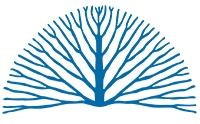Greater Madidi-Tambopata Landscape Conservation Program
The program focuses on developing the knowledge base and capacities at the local and national levels to promote integrated territorial planning and the development of a policy environment that supports and informs local land visions for the management of forests, water and social inclusion.
https://bolivia.wcs.org/
Institutions: Wildlife Conservation Society, Organizaciones indígenas, Municipios, Áreas Protegidas, Asociaciones Productivas & Autoridades Estatales
Rios Vivos Andinos
There is an urgent need to herald the importance of free-flowing rivers to human and ecosystem wellbeing in the tropical Andes. Transformations in the Andean landscape—from new infrastructure, deforestation, mining, or climate change—threaten to compromise river flows critical for human and ecosystem wellbeing. We propose a new platform for regional partnership—Rios Vivos Andinos— that will strengthen enabling conditions for conservation and improved management of free-flowing rivers. Rios Vivos Andinos has a unique opportunity to unite scientists, government authorities, conservation practitioners, and riparian human communities in at least five countries—Colombia, Ecuador, Perú, Bolivia, USA. Our 3-year effort will:
• OBJECTIVE 1: Increase access to watershed and regional level scientific information and traditional knowledge for management and conservation of tropical Andean rivers;
• OBJECTIVE 2: Strengthen capacity of regional authorities and conservation practitioners to understand the importance of free-flowing rivers, and effectively implement related management strategies; and
• OBJECTIVE 3: Convene the first Andean Rivers Summit to showcase existing knowledge, conservation, and management of tropical Andean Rivers.
Institutions: Florida International University, Pontificia Universidad Javeriana, Universidad San Francisco de Quito, Universidad Nacional Mayor San Marcos, Faunagua & Wildlife Conservation Society
Low Cost Monitoring for Sustainable Water Management
There is an urgent need to improve understanding of the quantity, quality and timing of river flows in the tropical Andes as a foundation for sustainable water resources management. With numerous regional partners, Florida International University (FIU) has a unique opportunity to build upon decades of collaborations and put the strengths of academia to work to respond to this pressing challenge. We aim to demonstrate that there are viable, flexible, and low-cost options to collect timely information for water resources management in the Andes.
Our project has three main objectives:
- OBJECTIVE 1: Pilot networks of low cost remote sensing units for a range of freshwater resource monitoring applications;
- OBJECTIVE 2: Train a cadre of local professionals on how to develop and use low cost technologies for remote sensing of water resources;
- OBJECTIVE 3: Provide guidance on interpretation of monitoring data and its use in sustainable management.
Institutions: Wildlife Conservation Society, Florida International University & Others
Amazon Fish – Climate Change
Amazon Fish – Climate change is an ERANet-LAC project, with basic and applied objectives, which brings together specialists from European and Amazonian countries, who are trying to build a high-quality database on the biodiversity of inland water fishes for the entire basin amazon. To this end, available information from published articles, books, online databases, national and international museums and universities will be analyzed and integrated. The digitized database, with international standard (Darwin Core), will contain as a base many existing Ichthyology Collections and including new information generated by taxonomic analysis of recent material and especially from expeditions to areas with taxonomic priorities and information gaps Area. Useful data to implement programs of sustainable use and conservation of species and / or amazonian ecosystems.

